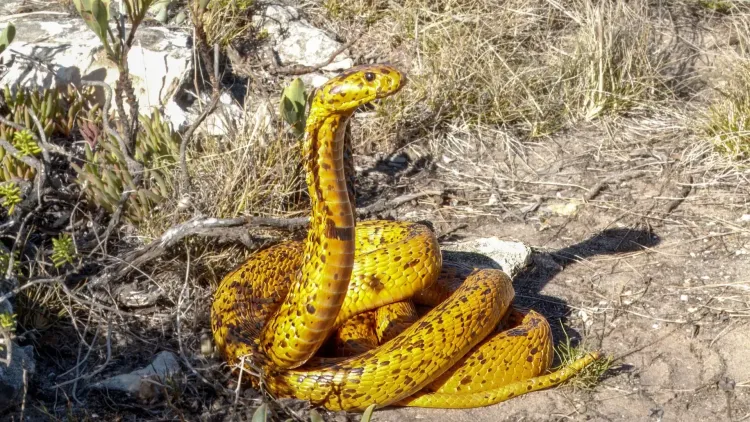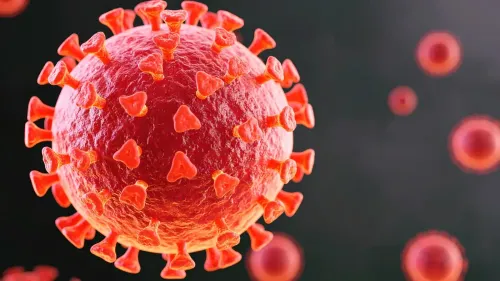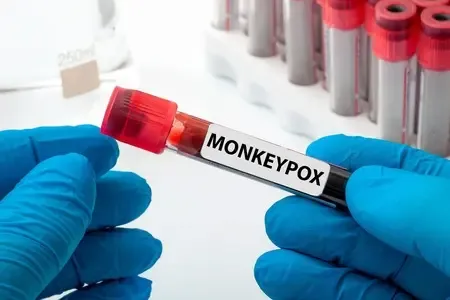Could a New Antivenom Change the Fight Against 17 African Snake Species?

Synopsis
Key Takeaways
- New antivenom targets 17 African snake species.
- Utilizes phage display technology for production.
- Lower cost than existing treatments.
- Improves protection against tissue damage.
- Needs further studies before human testing.
New Delhi, Oct 31 (NationPress) Researchers from Denmark have achieved a significant breakthrough by creating an antivenom that demonstrates efficacy against 17 different African snake species, potentially transforming the approach to treating venomous snakebites.
According to the World Health Organization (WHO), snakebites claim approximately 150,000 lives globally each year. Those who survive often endure severe disabilities, such as amputations and lasting tissue damage.
The existing antivenoms are unable to cover all critical snake species and frequently fail to neutralize all harmful toxins present in snake venoms.
This new broad-spectrum antivenom was formulated by researchers at the Technical University of Denmark (DTU), utilizing a combination of eight carefully chosen nanobodies in a single cocktail.
Laboratory tests revealed that the antivenom was effective against a variety of 17 African snake species, including cobras and rinkhals. It also demonstrated improved protection against tissue damage and reduced the likelihood of immune reactions.
Notably, it can be manufactured at a lower price compared to current antivenoms, as detailed in a study published in the journal Nature.
“We have created an antivenom that doesn’t depend on the continuous extraction of antibodies from animals. Instead, we utilized phage display technology to engineer our antivenom,” stated Andreas Hougaard Laustsen-Kiel, who spearheaded the research at DTU.
“This technique allows us to select and replicate effective antibody fragments (nanobodies) and subsequently produce them on a large scale with consistent quality. This implies that we can generate the antivenom in substantial quantities without sacrificing quality,” he added.
While the antivenom shows great potential, it has not yet undergone human testing.
The research team indicated that the antivenom's efficacy diminishes when administered after venom exposure.
Additionally, venom from some species, like the black mamba and forest cobra, was only partially neutralized, emphasizing the significance of both venom composition and treatment timing. This indicates that the antivenom does not currently offer complete protection in all scenarios.
Highlighting the necessity for further research and clinical trials, Laustsen-Kiel asserted that the “antivenom holds the promise of fundamentally altering the treatment of snakebites globally.”









